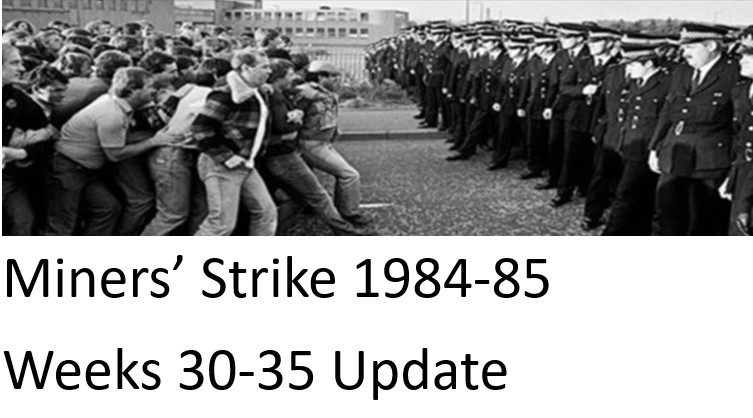By John Pickard
The Social Democratic Party leadership of Berlin have rocked the establishment by trying to implement a rent freeze. The German capital has seen a huge increase in rents over the past few years, largely because of the shortage of adequate housing. Rents have increased by more than in any other German city in the past decade, and with 85 per cent of Berliners living in rented accommodation, it is an explosive issue.
The new measures of the SPD city leadership are to freeze all rents at the mid-2019 level for the 1.5m flats built before 2014 and to apply other restrictions to older properties. For any new rental contracts, the city has imposed a limit based on the age of the property and its condition. Tenants deemed to be paying too much can apply to have their rent decreased and, according to some estimates, as many as a third of a million might be eligible.
As might be expected, the financial establishment, conservative politicians, builders and landlords are all in uproar over these policies and have organised an investment strike. All plans for new house-building have been put on ice. “They’ve basically stopped doing everything but emergency repairs” reported the correspondent of the Financial Times (January 13), “…you’re seeing the first cancellations, with investments originally planned for this year declining dramatically…and order backlogs shrinking fast.” The federal government of Angela Merkel is looking to see if the city council’s freeze can be blocked by the country’s constitutional court.
Rent freeze is immensely popular
Yet the policy is immensely popular. “There is widespread popular support for the measure. For years, anger has been growing at private developers such as Deutsche Wohnen, Berlin’s biggest residential landlord, which has a reputation for renovating its buildings and then jacking up rents…” (Financial times). There is even a campaign to have Deutsche Wohnen and other big developers taken into public ownership, along with their flats and properties. Campaigners are gathering signatures for a city-wide referendum on the issue. The SDP mayor of Berlin, Michael Muller, recently told Der Spiegel magazine that he had a message for private developers: “You can’t do what you want in this city.”
The rent freeze in Berlin and the reaction of the financial elite show in microcosm the yawning gulf between what are very reasonable demands by ordinary workers – reflecting their real needs – and the limitation of what the capitalist system can do for them. The so-called ‘free market’ has utterly failed in Germany, as it does in the UK and elsewhere, and it will continue to fail, because it is premised on a housing shortage to maintain high profits.
Socialists would argue that if the builders and developers are not prepared to build for need, then they should be taken over and a national house-building agency, along with local authority direct labour departments, must be allowed to build for need and not profit.
Labour manifesto included rent controls
The Labour Party conference last September passed a number of important resolutions on housing and the rented sector featured strongly in them. Resolutions were agreed that called for rent controls to be applied to all rented property, including the private sector and for a rent freeze for all “affordable” housing tenants. It was no surprise, therefore, that it was also in Labour’s election manifesto, which said that “we will take urgent action to protect private renters through rent controls, open-ended tenancies and new, binding, minimum standards…”
The sky-rocketing level of rents and the housing shortage are crucial issues around the country and particularly in London. According to HomeLet, the average rent in London for new tenancies is now £1,665 a month, way above the average wage.
Another agency, Protertywire.com, highlights the huge disparity between increases in rent in some boroughs and more meagre wage increases. “Greenwich is the borough that has seen the biggest rise in rent. Between 2011 and 2017 rent of a two bedroom flat increased by 50%, to an average rent of £1,350 per month. Meanwhile, wages in the borough increased by just 7.2%…Other London boroughs with a significant gap between pay rises and rent include Newham, where rent increased by 47.4% compared with wage growth of 9.5%”
Three quarters of income going on rent
According to the housing charity Shelter, “Our analysis of the 2015/16 English Housing Survey shows that private renters in the bottom quintile of household income spend 76% of their income on their housing costs.”
For any Labour member it is completely intolerable for families to be paying huge proportions of their incomes in rent. Housing benefit, which costs the tax-payer tens of billions of pounds a year, is an essential life-line that keeps millions of families’ heads just above water. But it is, in effect, a subsidy that goes towards greedy landlords.
There is a clear message in all this to the next Labour leader. If the Labour manifesto was “too radical”, as some candidates have alleged, exactly what policies will you dare to drop? Rent controls?
There is also a message from Berlin to the Labour mayors of big cities, to people like Sadiq Khan in London. Will you begin to champion in the same radical manner as your Berlin counterparts for the interests of tenants?
We know that Labour members will think: Labour must be the champion of the poorest and most disadvantaged in society and that must mean it fights for the interests of those in rented accommodation. Socialist ideas are not ‘theoretical’ constructs. They come from the concrete conditions that working class people face and they are more relevant today than they have ever been. Labour leadership candidates, please note.
January 15, 2020



